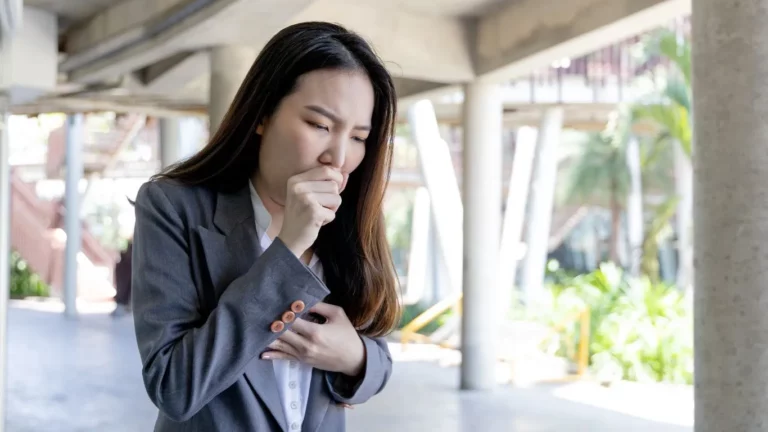Stress Relief Techniques for Hypertension: How to Lower Your Blood Pressure Naturally
Feeling stressed out can make your blood pressure rise. If you’re managing hypertension, finding effective stress relief techniques can make a big difference in your health. This guide will cover practical ways to reduce stress and keep your blood pressure in check.
Stress is one of the key factors that can worsen hypertension. And let’s face it, life can get overwhelming sometimes. Whether it’s work, family responsibilities, or financial concerns, stress often feels like it’s always lurking around the corner. But don’t worry, there are ways to tackle stress and keep your blood pressure in check. Let’s dive into some simple and effective techniques to help you out! 
Why Stress Affects Hypertension
Stress impacts your body in various ways, and one of its most significant effects is on your blood pressure. When you’re stressed, your body releases hormones like adrenaline and cortisol, which can increase your heart rate and narrow your blood vessels. This combination causes a spike in blood pressure. If this happens regularly, it can contribute to long-term hypertension (high blood pressure), which is a risk factor for heart disease and stroke. The good news is, stress management can help lower your blood pressure and reduce these risks. So, let’s explore some ways you can relieve stress. 
Top Stress Relief Techniques to Manage Hypertension
Managing stress effectively is one of the most important steps in controlling hypertension. Let’s go over some of the best techniques that can help you feel more relaxed and, in turn, improve your blood pressure.
1. Deep Breathing Exercises
Deep breathing is one of the easiest ways to calm your nervous system and reduce stress. Try this simple technique: inhale deeply through your nose for about 4 seconds, hold the breath for 7 seconds, and then exhale slowly for 8 seconds. Repeat this several times. Deep breathing helps slow your heart rate and relax your body, which can lower your blood pressure.
2. Meditation and Mindfulness
Mindfulness meditation is all about focusing on the present moment. By practicing mindfulness, you can detach from negative thoughts that contribute to stress. Start by sitting in a quiet place, closing your eyes, and focusing on your breath. If your mind starts to wander, gently bring your focus back to your breathing. Over time, regular meditation can help you manage stress and lower your blood pressure.
3. Regular Physical Activity
Exercise is not just good for your body; it’s great for your mind too! When you exercise, your body releases endorphins, which are natural mood boosters. Regular physical activity, such as walking, swimming, or yoga, can help reduce stress, improve circulation, and lower blood pressure. Aim for at least 30 minutes of moderate exercise most days of the week. 
4. Progressive Muscle Relaxation
Progressive muscle relaxation involves tensing and then relaxing different muscle groups in your body. This technique helps reduce muscle tension and promotes overall relaxation. Start with your feet and work your way up to your head, tensing each muscle group for 5 seconds before releasing. This method can help relieve both physical and mental stress.
5. Social Support
Spending time with friends, family, or loved ones can make a huge difference in managing stress. Social support is crucial for mental health, and just talking to someone can help release built-up tension. If you feel stressed, consider calling a friend or going for a walk with a loved one. Socializing helps release oxytocin, which can counteract stress hormones and help lower your blood pressure.
6. Laughter
Laughter really is the best medicine! Laughing reduces stress hormones and triggers the release of endorphins. Watching a funny movie, hanging out with a friend who makes you laugh, or just letting yourself giggle can be an instant stress reliever. So, go ahead and laugh—it’s good for your health! 
Creating a Stress-Relieving Routine
Building a routine that includes stress-relieving activities can help you manage your blood pressure in the long term. Here are some tips to create a routine that works for you:
1. Make Time for Relaxation
Set aside time each day to unwind. Whether it’s through reading, listening to music, or practicing relaxation exercises, find what works for you and stick with it.
2. Prioritize Sleep
Poor sleep is a major stressor. Aim for 7-9 hours of quality sleep each night to help your body recover from stress. Establish a calming bedtime routine to signal to your brain that it’s time to rest.
3. Set Boundaries
Learn to say no when you’re feeling overwhelmed. Setting healthy boundaries at work or with family members can prevent stress from building up. Prioritize your mental health!
Appendices
References
Here are some helpful references for further reading on stress relief and hypertension management:
- American Heart Association (2023). Managing Stress and Blood Pressure. Read Article
- Smith, J., & Lee, R. (2022). Effects of Meditation on Hypertension. Journal of Hypertension, 50(4), 230-240. Read Article
- National Institutes of Health (2024). Stress and Hypertension: How to Manage. Read Article
FAQs
Here are some common questions about stress relief techniques for hypertension:
- How do I know if stress is affecting my blood pressure? If you’re feeling overwhelmed, anxious, or tense frequently, it’s a good sign that stress is impacting your blood pressure. You may want to monitor your blood pressure regularly to see if there are spikes during stressful moments.
- Can meditation really lower blood pressure? Yes! Studies have shown that regular meditation can significantly reduce both stress and blood pressure levels.
- How often should I practice stress relief techniques? Ideally, incorporate some stress-relief activities into your daily routine, even if it’s just for 10-15 minutes a day. Consistency is key!
- Can exercise reduce stress and lower my blood pressure? Absolutely! Exercise helps reduce stress hormones and boosts circulation, both of which contribute to lower blood pressure.
- Is laughter really good for lowering blood pressure? Yes, laughter is a great way to reduce stress hormones and lower your blood pressure. So, go ahead and have a good laugh!
Disclaimer: The information in this article is for educational purposes only. It is not intended to replace professional medical advice. Always consult a healthcare provider before making changes to your lifestyle, especially if you have hypertension or any other health condition.





